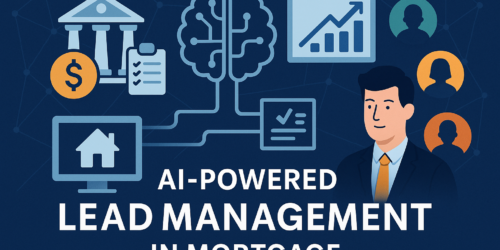Technology in the mortgage industry has changed dramatically in the four years since ProPair launched. What hasn’t changed, however, is the reason the company’s founders, Ethan Ewing and Devon Johnson, came together in the first place. Inspired by seeing how companies struggled to strategically scale lead management processes, the duo knew what the missing puzzle piece was: Helping sales and marketing leaders maximize the strengths of their teams and processes by tapping into the power of big data.
What started by chance after meeting at their kids’ preschool turned into a commitment to combine their complementary skills and experience to deliver the ability to better connect people through technology. To give a deeper look into the people behind our tech, we’ve gathered insight from Ethan about how the company came to be, and what he envisions for the future.
What was happening in the market that drove the founding of ProPair?
Before ProPair, I started and ran a mortgage lead generation business. The mortgage lenders I worked with over those ten years were providing varying degrees of feedback about lead quality. As a lead seller, I questioned what was happening to the leads once purchased to cause this varied feedback. Devon had worked extensively in technology and data science. Together, we wondered about how mortgage lenders were assigning, prioritizing, and following up with leads and how we might leverage data science and technology to improve existing methods. We knew that if we could make the process smarter, then those leads would have more value.
Why is this technology so important for mortgage lenders?
Consumer direct lenders are spending millions of dollars a month to buy leads, but they have limited tools to optimize the assignment and prioritization of those leads beyond basic workflow rules. Our products can make a measurable difference in lead conversion, loan closings, and revenue for consumer direct lenders – even during favorable markets.
How has the vision changed over time as technology adoption increased?
Even in the past year, it has changed a lot — especially with what we’re able to do with machine learning applications and changing the way people think about managing leads they buy. It has evolved mostly out of necessity because there are just so many more leads in the space. We’ve automated the decision-making process and added predictive decisions to make it a much better, more efficient process to manage their lead buys.
What has helped drive adoption of big data technology in the mortgage industry?
Mortgage lenders need tools to help them manage what would otherwise be overwhelming data. We help them simplify that data and make smarter decisions around how they manage, prioritize, and assign leads. There has been greater adoption as lenders understand they must use their data in a more scalable manner. When you have innovative technology, the minute people see how it works they get excited because they know they are ahead of the industry curve and they start to push the boundaries. People then wonder how else they can leverage the technology.
What are our company goals for the new few years?
We think we can move the entire industry from the mindset of relying on fixed rules to relying on future forward technology and innovation to power automated, predictive decisions. We want to drive the industry forward. The mortgage sales and marketing function really has not gotten a lot of attention from technology companies. We are working with our customers to give them the tools to innovate in a way they might not otherwise have pursued or considered.
What has been the most rewarding part of the journey?
Being able to come into an industry that I’ve been in for over 20 years with a different lens and being able to advance the industry in a different way has been refreshing. We’ve found something that works. We’ve brought machine learning to consumer mortgage lending and created something of real value to the industry and our clients. I love evolving in and with an industry – bringing all of us to a new operating level.
What should consumer direct lenders know about machine learning and driving lead performance?
It’s easy. They can do it. All it takes is a little leap of faith, data and a little bit of time. It will change the way they look at the leads they are buying, how their team is working through those leads, and how loan officers are performing. This technology will give them a whole new perspective on their business — and a tool to better manage their business. It’s a positive change.



